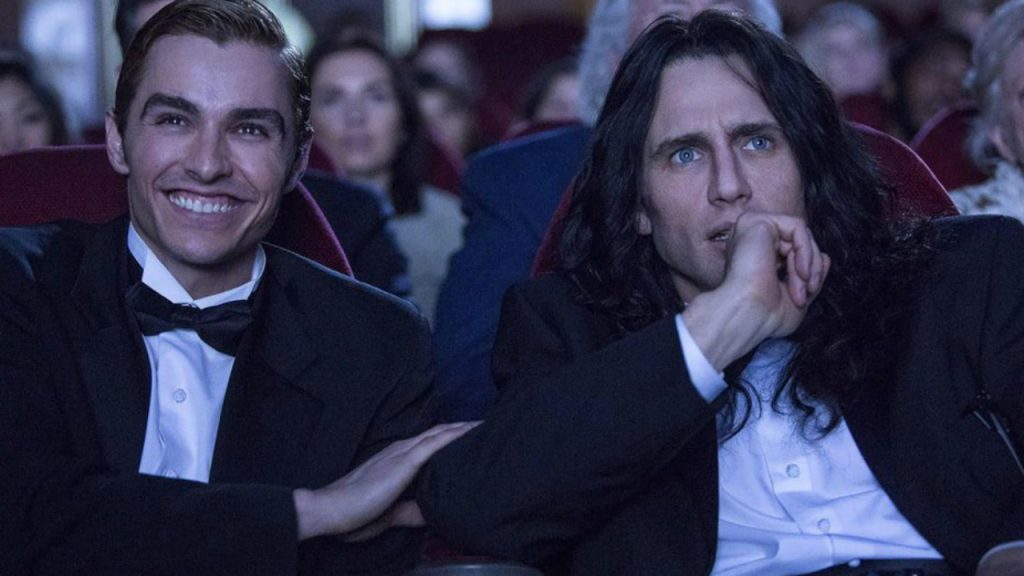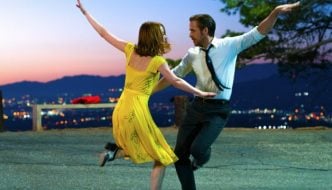
The Room is a bizarre, once in a million film that through some combination of artistic hubris, ironic appreciation and a kind of weird-but-compelling awfulness became a cult classic. To this day there’s a dedicated audience who attend midnight screenings in costume and shout lines back at the screen à la Rocky Horror Show. There are, however, thousands of terrible movies that simply disappear; so why does this terrible movie inspire such rabid devotion? Well, a lot of reasons, but key among them is the genius/insane auteur behind the film, Tommy Wiseau.
Directing, writing, editing and starring in the movie, Wiseau displayed such a stunning lack of understanding of filmmaking, writing, or even really how humans work as to seem positively alien. It’s impossible to adequately explain the film in writing; it really must be seen to be believed. Watch some clips on YouTube – it’s really kind of awe-inspiring that someone could not only create this, but create it so earnestly and with such serious intention. And that, I think, is what so appeals to people; there isn’t a hint of irony or self-awareness in the movie – Wiseau really did see himself as a directorial prodigy making great art. (Wiseau initially marketed the movie as a ‘film in the vein of Tennessee Williams’ before seeing how audiences reacted and swiftly retrofitting it as a ‘black comedy’.)
Wiseau’s enigmatic history and the question of how he funded the film only added to the mystique. Although he claimed to be an all-American boy from New Orleans, his accent was distinctly eastern European; he claimed to be in his early twenties during the making of the movie but it seems impossible that he wasn’t in his late thirties, at the very least; and, perhaps most mysteriously, he self-financed the movie (which cost six million dollars), despite having spent the previous years as a struggling actor with no other means of income.
One fan of the film, James Franco, was so fascinated by the story and Wiseau that he decided (in a decidedly Wiseau-ian move) to direct and star (as Wiseau himself) in a movie about the movie: The Disaster Artist. If that sounds gratingly meta and self-satisfied, rest assured, it is (particularly when you find out that Franco directed the film in character). And yet it’s hard to knock what is often an earnest, sympathetic and at times very funny depiction of Wiseau and his story.
Based on the book by Greg Sestero, Wiseau’s friend and fellow actor in The Room (played by James Franco’s brother, Dave), it tells the story of how these two struggling actors met in an amateur acting class before deciding to move to LA together to pursue their dream. Yet their dream is harder to achieve than they initially believed, and LA only seems to emphasise their status as have-nots (like when they miserably look on as they drive past the glitzy Shakespeare In Love premiere – which is an interesting contrast as Shakespeare In Love, while polished and well-presented, wasn’t half as memorable as anything in The Room). Their decision to make The Room, then, is depicted as a kind of two fingers up to the Hollywood establishment that rejected them. It portrays The Room and its eventual (semi-)success as a triumph over adversity through sheer force of will.
Franco, to be fair, effectively embodies Wiseau and with a level of nuance I wasn’t expecting. It’s a difficult role to grapple with; Wiseau’s bizarreness and eccentricities would be easy to play in a cruel or cynical way, yet Franco largely refrains and instead finds something decidedly sweet and perhaps even kind of tragic about him. His Wiseau seems like someone who desperately wants to belong, and who sees movies and stardom as a means of acceptance. This desire is manifested, for example, when Tommy wants to throw a football around with Greg, yet clearly has never touched, much less thrown one before. He sees football, like the movies, as some kind of American ideal he must attain. It’s an interesting role and Franco deserves credit for not veering into caricature (to which Wiseau himself already veers close).
A criticism one could certainly level at the movie is that it is inescapably self-indulgent. While the performances and writing are generally good, it’s impossible to ignore the fact that you’re basically watching Franco and Friends (Seth Rogen, Judd Apatow, Zac Efron and more all make appearances) bum around and recreate a movie that they like. Not that that’s necessarily a bad thing, but it’s dependant, I suppose, on how much mileage you get out of watching James Franco do a good impression of Wiseau with his assorted famous friends. And that, really, is the film in total – a competent buddy comedy anchored by Franco’s performance and a clear affection for the source material.
In other words, it’s insubstantial but fun. And there is something genuinely quite uplifting about the story it tells. Wiseau, while not perhaps how he imagined, achieved some level of fame and success because of his movie, and that seems something to celebrate. Terrible though it may be, people still talk about it over a decade later; who’s still talking about Shakespeare In Love?




Comments